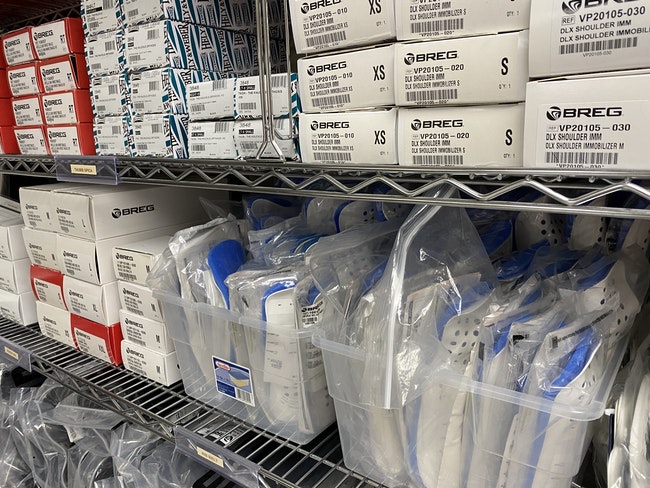Local leaders are closely watching legislation introduced by Oregon lawmakers establishing minimum nurse-to-patient ratios at hospitals.
Shawna Peterson, the executive director of the public body established to grow the economy along the Malheur County and Idaho border, said the Eastern Oregon Border Economic Development Board – known as the Border Board – is monitoring House Bill 2697 and other bills that may affect the border region.
The legislation has been assigned to the House Committee on Behavioral Health and Healthcare and is scheduled for a public hearing Tuesday, Feb. 28 at 5 p.m.
Peterson said the border board has yet to take a position on the legislation.
A representative for Dina Ellwanger, president of Saint Alphonsus Medical Center-Ontario, declined to comment on the legislation.
Meanwhile, Scott Palmer of the Oregon Nurses Association said hospitals around the state and the country have operated at “unhealthy” staffing levels for decades. The pandemic, Palmer added, compounded the problem.
He said the Oregon Health Authority does not enforce the current Oregon law that requires hospitals to follow staffing plans developed with their nursing staff.
Palmer said numerous investigations and research into various hospitals had exposed violations. The short staffing, Palmer said, has led to nurse burnout and high levels of turnover and difficulties in recruiting new nurses. Palmer said three out of four nurses in the state have contemplated leaving healthcare entirely due to the staffing situation.
“It’s not a problem of not having enough nurses,” Palmer said. “It’s a problem of that there aren’t enough nurses willing to work in these abysmal conditions.”
The Oregon Association of Hospitals and Health Systems contends in its 2023 legislative priorities document that the current staffing law does not work for hospitals, staff or patients.
Under the proposed legislation, according to the hospital association, some hospitals could not hire enough nurses to meet the new standards. Consequently, according to the association, a hospital instead would be forced to cut services.
“(The legislation) creates a one-size-fits-all approach to staffing standards for hospitals that lacks evidence-based support,” Lisa Goodman, the hospital association vice president of communications, said. “This bill starts a conversation but is not the answer to a complex problem that has root causes reaching beyond hospitals.”
The hospital association has proposed solutions to the labor shortage, including the state offering financial incentives to hospitals that provide clinical training opportunities for nurses and tax credits to nursing instructors.
Additionally, Tiffany Cruickshank, border board chair, said the board is supporting legislation for provisional licensing that would allow out-of-state applicants seeking occupational licenses in Oregon more time to meet the state standards if the person is already licensed in another state and is seeking to work in the border board region. The bill, Cruickshank added, would not be limited to nursing. House Bill 3065 has been assigned to the House Committee on Business and Labor. No public hearings have been scheduled.
The ratios that the nursing union proposes vary based on the hospital and the patient. For example, the requirement would be one registered nurse to one patient in an operating room. In oncology, the ratio would be one registered nurse to four patients.
Palmer said the requirements would not apply to nursing homes or other long-term care settings.
HOW TO SUBSCRIBE – The Malheur Enterprise delivers quality local journalism – fair and accurate. You can read it any hour, any day with a digital subscription. Read it on your phone, your Tablet, your home computer. Click subscribe – $7.50 a month.




